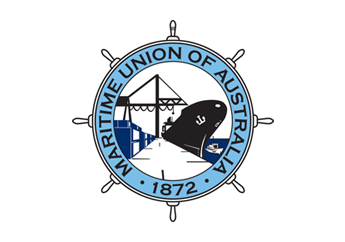
A new Code of Practice for Health and Safety in Shipboard Work, including Offshore Support Vessels was brought out in January 2019. The MUA was substantially involved in updating the previous Codes to make this new document.
The Code is made under the Occupational Health and Safety (Maritime Industry) Act 1993. However there may be useful material in it that applies to all seafarers.
Topics covered include:
- General Duties
- Consultation
- Risk management
- Working environment
- Shipboard emergencies
- Safe access to the ship
- Safe movement onboard the ship
- Confined spaces
- Tools and other equipment
- Welding, flame cutting and other hot work
- Painting
- Working at heights
- Working with electrical equipment
- Hazardous substances and radiation
- Carriage of dangerous goods
- Wire and fibre ropes
- Cargo operations
- Anchoring, docking and mooring
- Working in machinery spaces
- Working in galleys and other food handling areas
- Safety in living accommodation
- Offshore support vessels
- Bull carriers and bulk cargos
- Ro-ros and vehicle and passenger ferries
- Bunker barges and oil tankers
- Passenger vessels
- LNG and gas carriers
- Container ships
- Bulk chemical tankers
About this Code of Practice
An approved code of practice is a practical guide to the ship owner achieves the standards of health and safety required under the OHS(MI) Act. Similar to regulations,
Codes of Practice deal with particular issues and do not cover all hazards or risks that may arise.
The health and safety responsibilities require duty holders to consider all shipboard risks, not only those for which regulations and codes of practice exist.
Codes of Practice are admissible in court proceedings under the OHS(MI) Act and Regulations.
Failure to comply with a provision of a Code of Practice may be used by the courts as evidence of an offence under the OHS(MI) Act and Regulations in the circumstances to which the code relates.
The OHS(MI) Act and Regulations may be complied with in another way, for example by following a technical or an industry standard, if this provides an equivalent or higher standard of health and safety than that set out in the Code.
An inspector may refer to an approved Code of Practice when issuing an improvement or prohibition notice.
This Code is relevant for all types of ships, including offshore support vessels.
This Code should be read in conjunction with relevant Marine Orders and Codes of Practice on specific hazards and control measures relevant to shipboard work.
The words ‘must’, ‘requires’ or ‘mandatory’ indicate legal requirements exist which must be complied with. References to Marine Orders must be complied with to the extent that they apply to the vessel.



